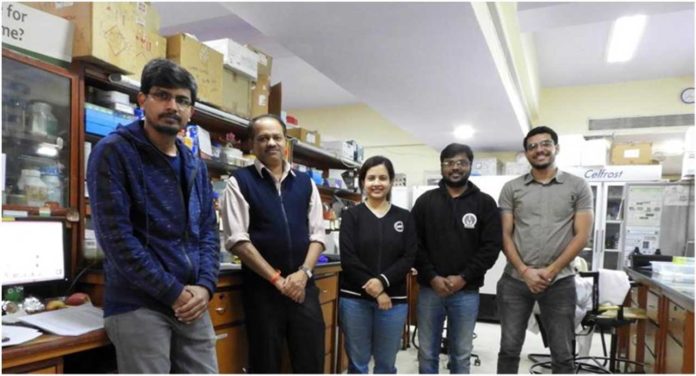In order to tackle the threatening climate change, scientists at the National Institute of Plant Genome Research (NIPGR), New Delhi has discovered a potential candidate gene(s) that can be utilized to develop climate-resilient crops with high productivity and yield under environmental stress conditions.
A research team headed by Dr. Manoj Majee reported a novel role of a protein repairing enzyme called protein L-isoaspartyl methyltransferase (PIMT) which plays a vital role in maintaining plant growth, survival, and yield under adverse environmental conditions.
The study demonstrated that stressful environments accelerate the formation of a harmful modified amino acid called Isoaspartic acid (isoAsp) residues from normal aspartate and aspargine in protein. This harmful amino acid modification badly affects the function of proteins and eventually leads to decreased plant growth, survivability and yield under heat and oxidative stress. This study is the first to report the significant role of PIMT to plant under stress conditions.
Dr. Majee’s team showed that the PIMT enzyme restores the deleterious modification in normal amino acids and restored the inherent function of the protein. Furthermore, it was discovered that the PIMT-mediated protein repair system is critical in maintaining reactive oxygen species (ROS) homeostasis during stress by protecting antioxidant enzyme functions. ROS are chemically reactive chemical species containing oxygen which cause huge damage to cell structures during environmental stress.
The increasing threat of climate change, global warming has already leashed a substantial negative impact on agricultural productivity and crop yield, causing a huge risk of future food securities. Therefore, the development of climate-resilient crops variety of major food crops is an urgent call to the scientists working in this domain.
To survive under adverse environmental conditions, the plant must have the ability to maintain the structural and functional integrity of its cell proteins which are susceptible to both reversible and irreversible damages. Such damage exposes the plant to the negative effects of environmental stress. Previous studies by the team have also shown that PIMT significantly improves seed vigor and longevity.
Therefore, it is highly exciting and promising that a single protein repairing enzyme PIMT can be utilized to develop potential climate-resilient crop plants with improved abiotic stress tolerance, yields, seed vigor- and longevity. Thus, the research finding would be of huge importance to agricultural scientists.
